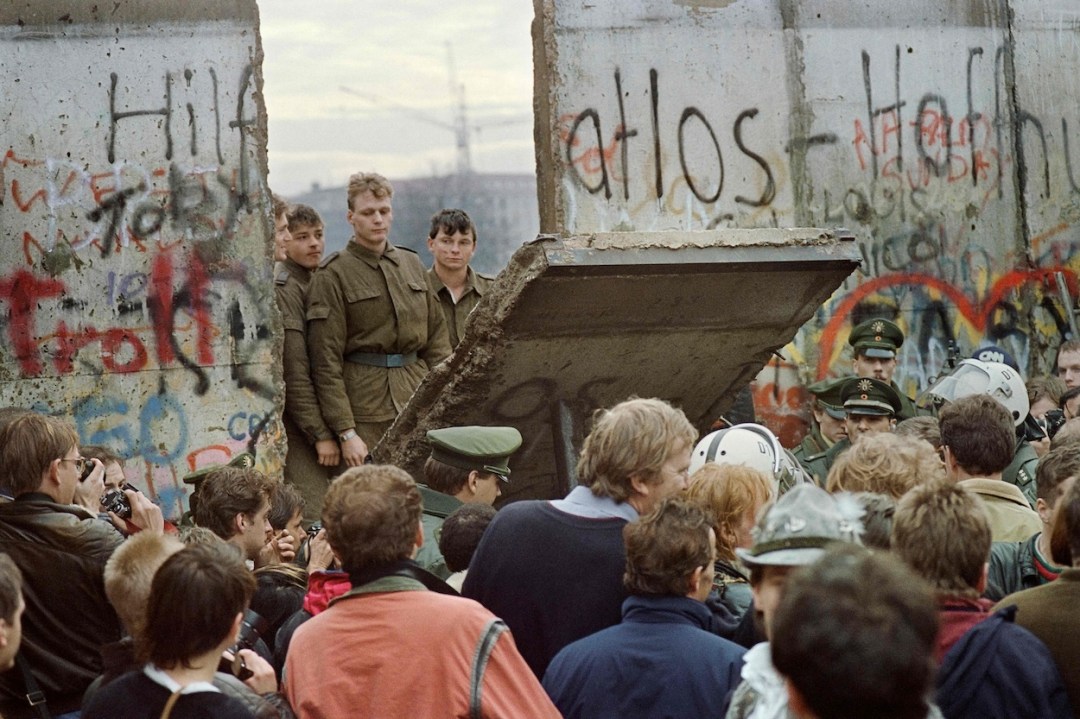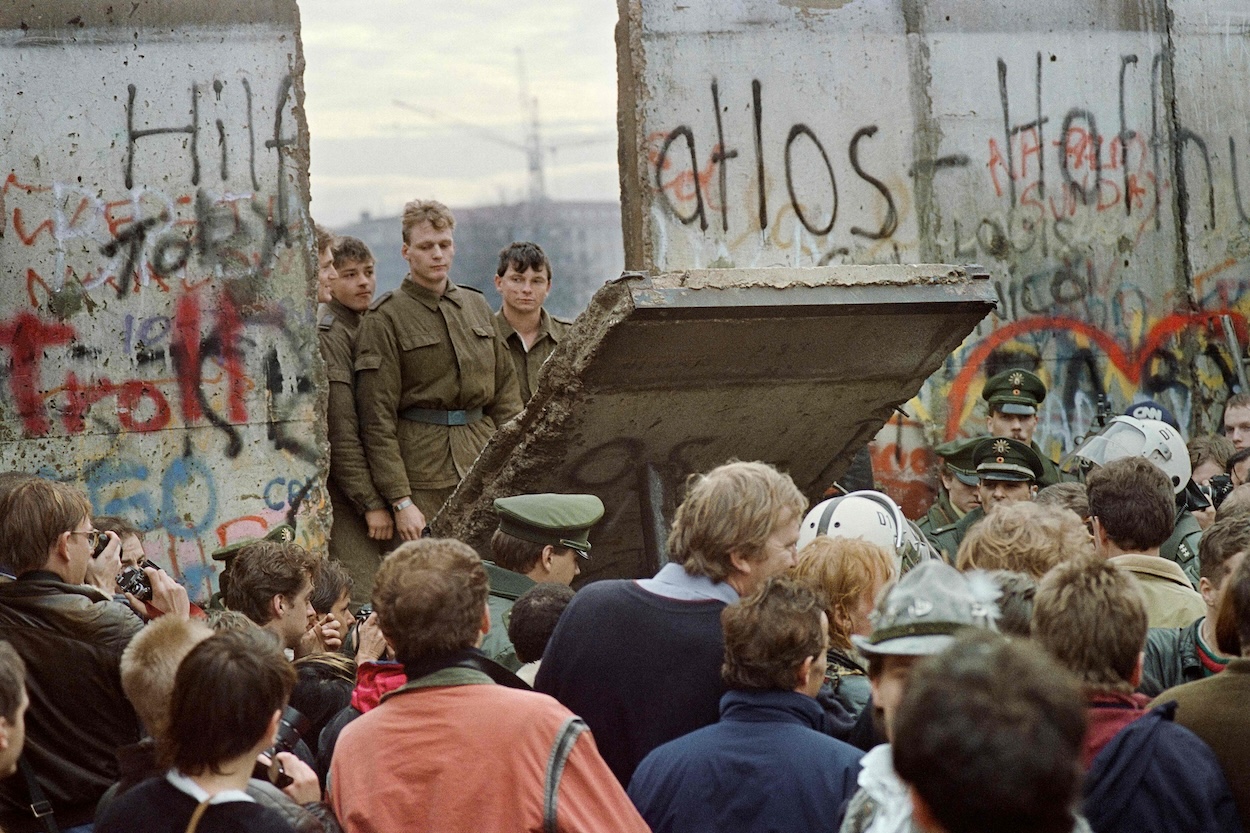The fall of the Berlin Wall was meant to have been the crowning moment for the West, and for the principles of empowering liberation and freedom. Obviously so – I used to think. Now I’m more along the lines of, well, yes and no. The fall also seems in some ways to divide the former good times from the current bad times, both for Germany and for the rest of us.
Such thoughts came to mind after I headed to Berlin to witness the New Year’s Eve fireworks display, during which the city is turned into the most attractive war zone you’ll encounter. I stayed with my brother, a creative type who, like many others artistically inclined, settled in Prenzlauer Berg, an area formerly in East Berlin. With the Wall down, people were drawn to the low prices and atmosphere of artistic liberty.
The area has changed a lot since those days. The victorious West brought trendiness and pricey gentrification. But among the vegan cafés that only accept card payments, I managed to find a couple of bars that harked back to the days of the socialist Deutsche Demokratische Republik.
In one, shelves bulged with communist paraphernalia and books by Marx, Engels et al. Framed photos of wholesome-looking blonde-haired fräuleins lined the walls. East German ice skater Katarina Witt, famed as much for her beauty and charisma as for her talent on the ice, had pride of place, alongside photos of happy campers in the East German countryside.
A few doors down, in another bar, a drag queen who sounded like a burly Scot was entertaining the hip young crowd. I felt it wasn’t quite my scene and retreated to the Katarina Witt bar. The barman took my order, noting it down with pencil and paper, to be paid with cash at the end. I’m a big fan of the system, especially after having to kowtow to the US mania for a tip per drink.
The reasonable prices draw a good mix of ages, from those who may have been in the Stasi to trendy youngsters. Sipping on my large glass of Berliner Kindl, I thought about the period after the Wall came down. I remember living it in the 1990s and am sure that it was good – it didn’t seem that different to what was depicted in the photos on the bar’s walls.
But the West lost its way. We are, as one of Angela Merkel’s deputies put it, in a ‘dictatorship of language rules obsessed with wokeism and gender gaga’. I’ve spoken to Berliners who say reunification still has not succeeded. No one tends to admit it in public, but the two Germanys remain alienated from each.
‘It was better with the Berlin Wall,’ one woman told me. I was reminded by a friend from the British Army (the most left-wing tank commander I have ever met) that Stalin described the West’s proclivities as ‘bourgeois deviationism’.
‘It was better with the Berlin Wall,’ one woman told me
That was then. The affluent West of now seems determined to deviate from everything that makes life worth living: being able to forge relationships, spontaneity, living a full natural life – Stalin would be impressed by the assisted dying bill – all in the name of safety, inclusion and efficiency. At an exhibition called ‘Everyday Life in the GDR’, I read the following lines: ‘From the very outset, the unification process [was] embedded in a European and transatlantic framework… designed to preserve stability in Europe and dispel fears of an overpowering Germany’.
The exhibition doesn’t pull punches about the DDR’s cruelty, but at the same time, as with the Katarina Witt bar, there are endless photographic examples of East Germans appearing to live decent lives. Today, Berlin’s city centre continues to get the bland upmarket treatment. But oases of authenticity are holding out; there is, for now, still a mix, which isn’t so easy to find in places like London.
Of course, the Berlin Wall was a suffocating concrete monstrosity that had to go, along with the stranglehold of the East German communist dictatorship behind it. But doubts about what was actually won in the aftermath remain. Perhaps both sides lost.
If you don’t believe me, look at the enduring popularity – perhaps even symbolism – of Berlin’s spätis. They are a legacy of East German times. These shops were established by the DDR to serve night-shift workers after they had clocked off from their communist mission. You go and buy a beer from the counter then sit outside, often on upturned crates, and chat with your fellow 2 a.m. strangers. The fact a simple late-night corner shop has so much appeal today tells you a lot about what is going wrong on our side of the Wall.







Comments